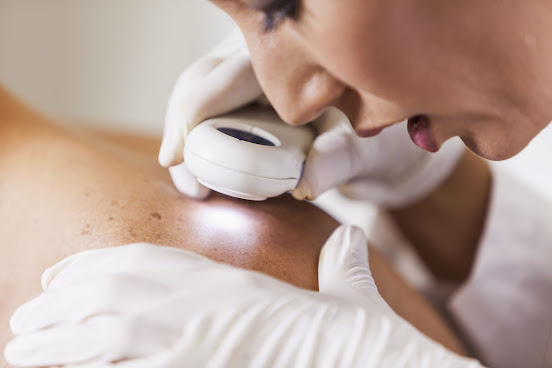How Dermatologist Help Treat Acne Scars Fast?
Acne scars can be stubborn and emotionally distressing, often outlasting the original breakouts that caused them. While over-the-counter solutions offer limited results, the path to smooth, even-toned skin lies in professional care. Dermatologists bring science, expertise, and cutting-edge technologies to treat acne scars with precision and speed. They evaluate the skin’s texture, scar type, and depth to tailor a strategic treatment plan. Whether dealing with atrophic, boxcar, rolling, or ice-pick scars, the Best Dermatologist applies advanced, targeted techniques for visible and lasting improvement. From resurfacing the skin to stimulating collagen, the goal is always fast, safe, and effective scar reduction, making professional care indispensable. If you're seeking transformative results that go beyond basic skincare, consult the Best Dermatologist in Dubai.
Understanding Acne Scars and Why They're Hard to Treat Alone
Acne scars result from inflammation in the skin’s dermal layer, leading to collagen damage and skin irregularities. These scars differ in shape, depth, and behavior, making it difficult for home remedies to treat them effectively. The complexity of acne scars requires an individualized approach that only a dermatologist can provide. Treating them fast means understanding the skin’s biology, not just applying surface-level solutions.
Why Fast Treatment Requires Medical Expertise
Speed and precision in acne scar treatment stem from in-depth dermatological knowledge. Dermatologists evaluate your skin type, scar classification, and previous treatments to formulate a plan that accelerates results without damaging the skin. This expertise ensures the safest and most effective course of action, reducing trial-and-error methods and avoiding prolonged healing times.
Types of Acne Scars That Dermatologists Treat
Top Dermatologist-Performed Treatments That Work Fast
Microneedling With Radiofrequency (RF)
Microneedling uses tiny needles to puncture the skin and stimulate collagen. When combined with radiofrequency energy, the procedure enhances skin tightening and scar remodeling at a deeper level. This dual-action therapy speeds up scar fading and is suitable for most scar types, especially rolling and boxcar scars.
Fractional CO2 Laser Resurfacing
Dermatologists use fractional CO2 lasers to precisely remove damaged skin layers and promote collagen synthesis. This method is powerful for moderate to severe scars and delivers fast results with fewer sessions. Controlled laser penetration ensures new skin regeneration without extensive downtime.
TCA CROSS (Chemical Reconstruction of Skin Scars)
TCA CROSS is ideal for ice pick scars. Dermatologists apply trichloroacetic acid directly into each scar, prompting controlled healing and tissue remodeling. This specialized technique isn’t suitable for home use and must be handled by a skilled dermatologist to avoid complications and maximize results.
Subcision for Rolling Scars
Subcision involves using a fine needle under the skin to break up fibrotic bands tethering rolling scars. This treatment elevates the depressed areas, promoting smoother skin and encouraging collagen production. Dermatologists often combine subcision with other methods for faster, more comprehensive results.
Erbium YAG Laser Treatment
For patients with sensitive or darker skin, Erbium YAG lasers offer precise resurfacing with reduced heat output, minimizing risks of hyperpigmentation. This advanced method is excellent for treating surface-level acne scars while speeding up the healing process.
Punch Excision and Punch Grafting
For deep, stubborn scars like ice-pick scars, dermatologists use punch techniques to surgically remove the scar and close the skin with minimal disruption. In grafting, healthy skin tissue is inserted into the excised area to promote natural skin blending.
How Dermatologists Ensure Faster Healing
Apart from treatment, dermatologists guide patients on:
-
Proper post-treatment skin care protocols
-
Safe sun protection strategies
-
Collagen-boosting lifestyle adjustments
Benefits of Dermatologist-Led Acne Scar Treatments
-
Fast, Visible Improvement: Professional equipment and techniques significantly reduce treatment time.
-
Targeted Approach: Each scar type receives specialized attention.
-
Minimal Trial and Error: No need to guess what works—results are based on science and experience.
-
Long-Term Solutions: Unlike temporary cover-ups, these treatments address root causes.
-
Tailored Care: Skin tone, type, and sensitivity are factored into every decision.
When Should You See a Dermatologist for Acne Scars?
If your acne scars:
-
Don’t fade after several months
-
Are causing emotional distress
-
Include deep or textured skin issues
-
Worsen with time
-
Are unresponsive to skincare products
Final Thoughts:
Acne scars can be a frustrating reminder of past breakouts, but they don’t have to be permanent. The fastest, most effective path to clearer, smoother skin lies in professional care. Dermatologists combine advanced tools, medical precision, and customized strategies to treat scars quickly and accurately.




Comments
Post a Comment